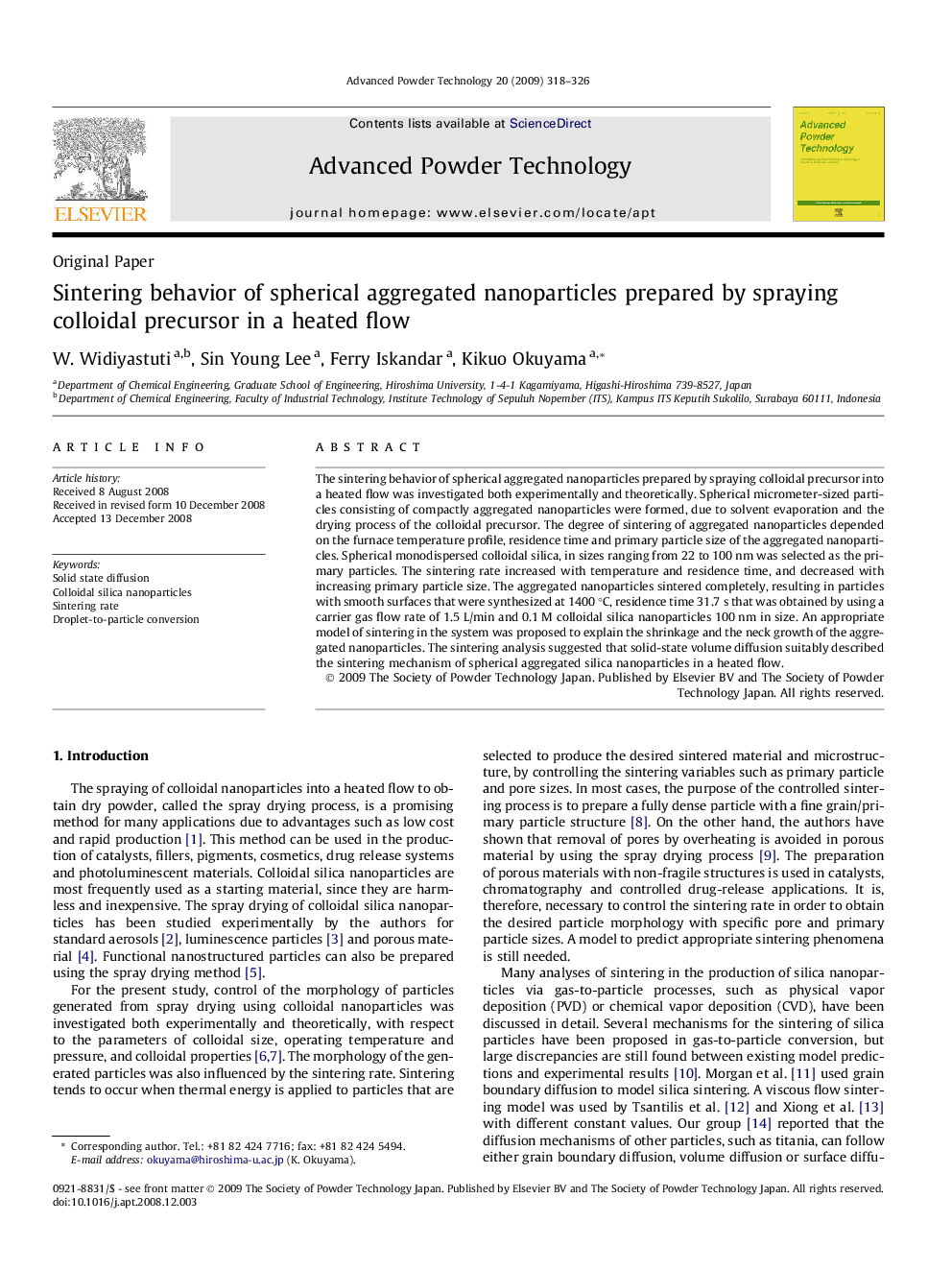| Article ID | Journal | Published Year | Pages | File Type |
|---|---|---|---|---|
| 145055 | Advanced Powder Technology | 2009 | 9 Pages |
The sintering behavior of spherical aggregated nanoparticles prepared by spraying colloidal precursor into a heated flow was investigated both experimentally and theoretically. Spherical micrometer-sized particles consisting of compactly aggregated nanoparticles were formed, due to solvent evaporation and the drying process of the colloidal precursor. The degree of sintering of aggregated nanoparticles depended on the furnace temperature profile, residence time and primary particle size of the aggregated nanoparticles. Spherical monodispersed colloidal silica, in sizes ranging from 22 to 100 nm was selected as the primary particles. The sintering rate increased with temperature and residence time, and decreased with increasing primary particle size. The aggregated nanoparticles sintered completely, resulting in particles with smooth surfaces that were synthesized at 1400 °C, residence time 31.7 s that was obtained by using a carrier gas flow rate of 1.5 L/min and 0.1 M colloidal silica nanoparticles 100 nm in size. An appropriate model of sintering in the system was proposed to explain the shrinkage and the neck growth of the aggregated nanoparticles. The sintering analysis suggested that solid-state volume diffusion suitably described the sintering mechanism of spherical aggregated silica nanoparticles in a heated flow.
